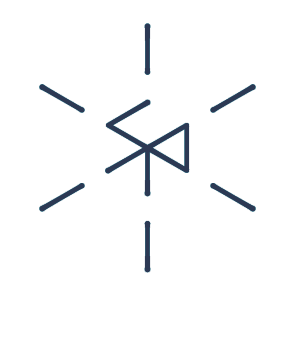WASH Challenges
Research and design for Innovation Challenges in Water, Sanitation and Hygiene (WASH) in humanitarian emergencies.
Incentivising Innovation
In early 2016 Elrha, through their Humanitarian Innovation Fund (HIF), asked us to help them design Innovation Challenges for five aspects of Water, Sanitation and Hygiene (WASH) in humanitarian emergencies. This gave us a great opportunity to expand our Good Problems work to a new context.
What are Innovation Challenges?
Innovation Challenges are calls for people to work towards solving an identified problem. They include a clear description of a problem, criteria that must be met by participants, a timeline, and a statement on how funding will be allocated.
WASH in Humanitarian Settings
We used five Problem Exploration Reports produced by the HIF's research partners to frame our work designing innovation challenges with the HIF. Each report focused on a different area of WASH that could benefit from innovation: Surface Water Drainage, Water Treatment, Handwashing, Solid Waste Management, and Emergency Sanitation.
Our Approach
Identifying problems
We used Problem Exploration Reports produced by the HIF's research partners, to define and frame problems that could be translated into Innovation Challenges. An important part of this was developing an understanding of barriers to progress and the limitations of existing solutions.
Understanding a community of solvers
For each problem we identified a community of people who are likely to have the skills and motivation to come up with proposals for solutions.
Incentivising action
We worked with the HIF to design innovation challenges for each WASH topic and tested them with experts for feedback. This helped us to make sure that challenges incentivised high quality proposals, and were well targeted at the problem and community identified.
The WASH Challenges
This project was exciting for us as the HIF were open to creative design for the challenges. This meant that we were able to experiment with different formats such as prizes, grants, crowdsourcing and workshops, all while taking into account the HIF’s mission and available resources.
| Identified Problems | Community of Solvers | Designed Challenges | |
|---|---|---|---|
| 1. Surface Water Drainage | Lack of clear guidelines and basic drainage solutions | Drainage engineers, WASH agents, camp planners, makers | TargetedInnovation workshop launch event followed by 2 calls for action |
| 2. Water Treatment | Unknown field efficacy of existing water filters | Water filter companies, start-ups, water quality researchers, WASH agents | TargetedCall for water filters and a field-testing partner |
| 3. Handwashing | Struggle to develop solutions that are both effective and scalable | Behaviour change experts, sanitation workers, product designers, affected communities | OpenLaunch workshop followed by 3 calls for action |
| 4. Solid Waste Management | Shift in focus towards improving ownership of waste requires new and diverse solutions | Product designers, packaging, humanitarian agents, behaviour change experts | OpenCrowdsourcing platform |
| 5. Emergency Sanitation | Existing solutions not tailored to user needs | Sewage experts, consultation experts, sanitation researchers, affected communities | TargetedCall for sanitation consultation methodologies and projects |
1. Surface Water Drainage: Introduction
In humanitarian emergencies water can pool or flood, producing a serious health hazard as well as breeding sites for disease vectors. We designed challenges that focused on knowledge sharing and creating new drainage tools to help reduce the impact of the problem.
Surface Water Drainage: In Focus
Identifying problems
Surface water drainage is an issue that has only recently come under the scrutiny of the humanitarian sector. Because of this, information about emergency surface water drainage solutions and implementation techniques is scarce.
Understanding a community of solvers
There is significant engineering, planning and design expertise in industry, which could be applied to the humanitarian sector to begin to address this problem. However prioritisation of the problem in the humanitarian sector is low as awareness is lacking and it is unclear where responsibility for drainage lies.
Incentivising action
To address this gap and to help raise awareness about the problem’s impact in humanitarian emergencies, we worked with the HIF to develop a call for proposals and launched it through an innovation workshop . The workshop brought together expertise from different fields, developed a common understanding of the problem, and encouraged people to collaborate on proposals for solutions.

2. Water Treatment
A number of water treatment technologies exist on the market, but there is limited information about their effectiveness in an emergency context. We designed two calls for proposals - one for improving existing filters and encouraging emerging technologies, and one for researchers to field test widely used household water filters.
3. Handwashing
A wide diversity of handwashing solutions exist, but their uptake and scalability in emergency situations has been difficult to achieve. We worked with Mensch to develop an open call for proposals in three different areas - behavioural campaigns, hand washing facilities, and alternatives to soap. Shortlisted applicants took part in a mentor workshop to enhance the scalability of their proposals.
4. Solid Waste Management
Solid waste produced in humanitarian emergencies is a newly recognised WASH issue that would benefit from creative thinking to encourage people to reduce their waste output. We designed an open challenge using a crowdsourcing platform to incentivise a broad diversity of solutions and facilitate collaboration between participants and the humanitarian community. Work to refine the final format of this challenge is ongoing.
5. Emergency Sanitation
Many sanitation solutions are available, but local communities are rarely consulted in what is provided for them. We designed two calls - one for local consultation programmes that involve affected communities in sanitation choices, and one for a research coordinator to develop an understanding of best practice, and to translate their findings into an informative and inspiring guide for the humanitarian sector. Work to refine the final format of this challenge is ongoing.










